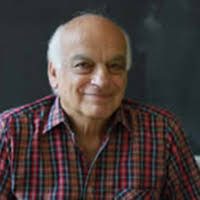David Copperfield the Hero of 'David Copperfield'
September 28, 2020
Gerhard Joseph, Professor Emeritus of the City University of New York, asserts that by viewing David Copperfield within the context of the novel, Charles Dickens's life, and within the reader's own life, David Copperfield must, indeed, the hero of his own life.
VIDEO TRANSCRIPT
Hello, I'm Gerhard Joseph, I'm a retiree from the City University of New York, and I've been coming to the Dickens Project and the Dickens Universe since the early Eighties. As a matter of fact, the very first year I came, I gave a weekend talk on David Copperfield and was sort of looking forward to doing David Copperfield again this summer, but of course, that's not to be.
So, I would like to consider the opening line, which I'd like to consider in three contexts. First, the novel itself; two, the life of Charles Dickens; and three, the reader as the hero of his own life. The famous opening line of the novel, as you all know, is, "Whether I shall turn out to be the hero of my own life, or whether that station will be held by anybody else, these pages must show."
Just a word about the word hero, or protagonist, or character: they, of course, go all the way back to Aristotle, in The Poetics, who talks about character, plot, and so forth. But more recent, if you don't mind getting a bit theoretical, a more recent notion of the novel, or any text, is it's a cluster of words. Now, those words may cohere together into what we call a character. And in that respect, it's true that if David Copperfield himself is the obvious hero of his own life, in a way, he sort of dominates very powerfully the childhood section the first years of his life until his mother dies. And then other characters, really powerful characters, Betsey Trotwood, Uriah Heep, Micawber, even Mr. Dick, come in and it's not that David disappears, it's that he doesn't have the effect of power that he's had in the first third of the novel.
The only other character that one might consider as the hero of this novel would, of course, be Steerforth--the Byronic romantic figure, especially in that final, great storm scene--but he really does have certain blemishes, if only his seduction of Little Em' ly and Carlyle who talks about the hero in, On Heroes, Hero-Worship, and the Heroic in History, which is in the endnote to that first sentence, generally gives us idealized figures and, Steerforth, and for that matter, David's undisciplined heart, they do have some warts, some blemishes.
Moving on to Charles Dickens himself, who would fit very nicely into Carlyle's notion of "The Hero as a Man of Letters," strictly Dickens would be one of the real heroes of the man of letters in the 19th century. But again, he certainly does have some warts. He does have some blemishes if only his dumping of Catherine and the children for a young Ellen Ternan.
Finally, the reader actually hero of his own life. At least this hero--the only one I can really talk about--I mean, I've been living in my head 24/7 for a good many years, and consequently can't imagine another hero for myself, if I were to write a novel. However, I do realize there are other people in the world and one ought to take them into consideration.
So, I guess I'd like to end with a quote from Charles Wright's "The Woodpecker Pecks, but the Hole Does Not Appear," that George Levine and I have bandied about for a good many years.
It goes the following way,
"The Ravens hawking from tree to tree, not you, not you,
That is all the world allows, and all one could wish for."
Thank you.
 Gerhard Joseph, Professor Emeritus of English at the City University of New York, has been coming to Santa Cruz each summer since 1983 and has enjoyed and profited from the Dickens Universe enormously over the years as a teacher and student.
Gerhard Joseph, Professor Emeritus of English at the City University of New York, has been coming to Santa Cruz each summer since 1983 and has enjoyed and profited from the Dickens Universe enormously over the years as a teacher and student.
Dickens-to-Go is a weekly program of short videos designed to whet the viewers' appetite for "more" of their favorite author. You can join Dickens Project faculty, friends, and students as they share a favorite passage from Dickens and say a few words about why they selected it.
What are your favorite passages? We hope you will make a video too! Email Courtney Mahaney for video submission guidelines.
